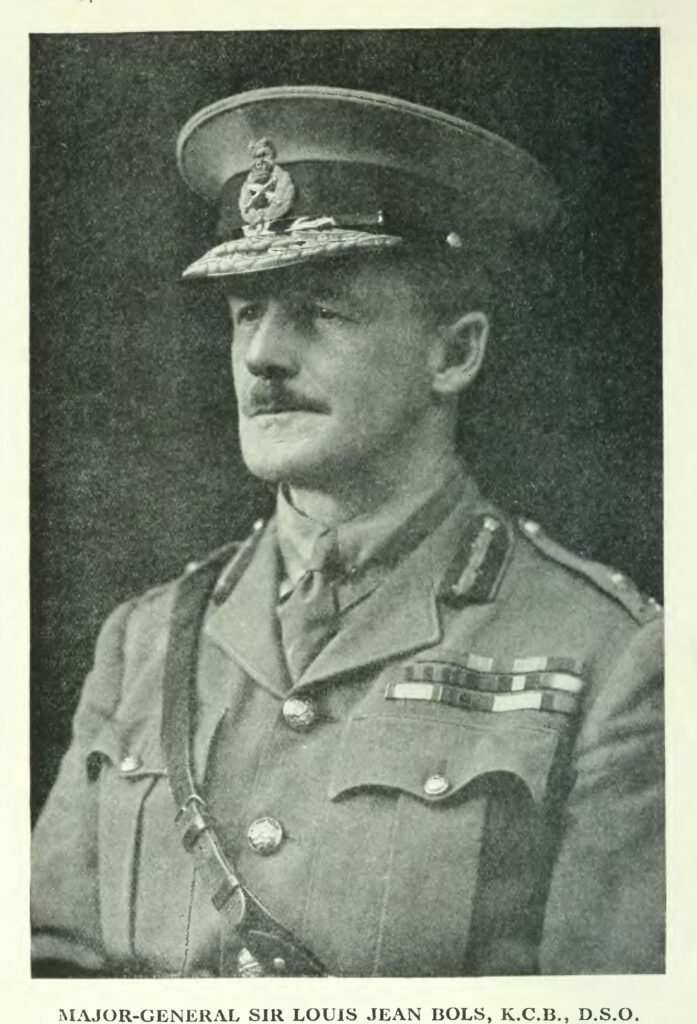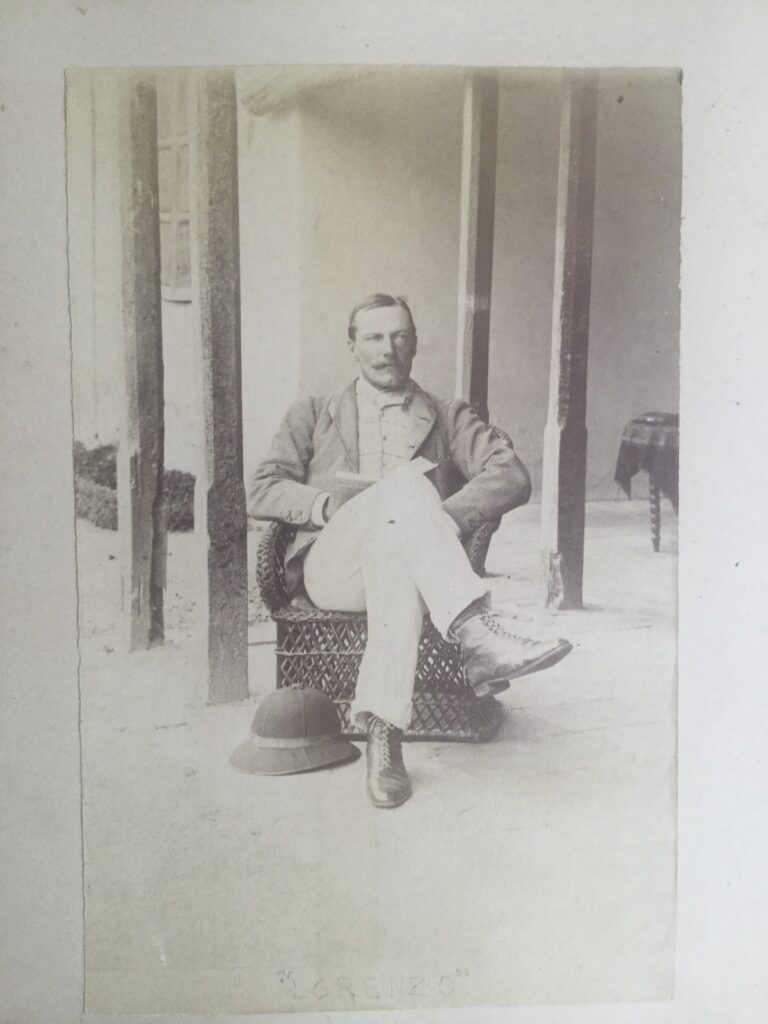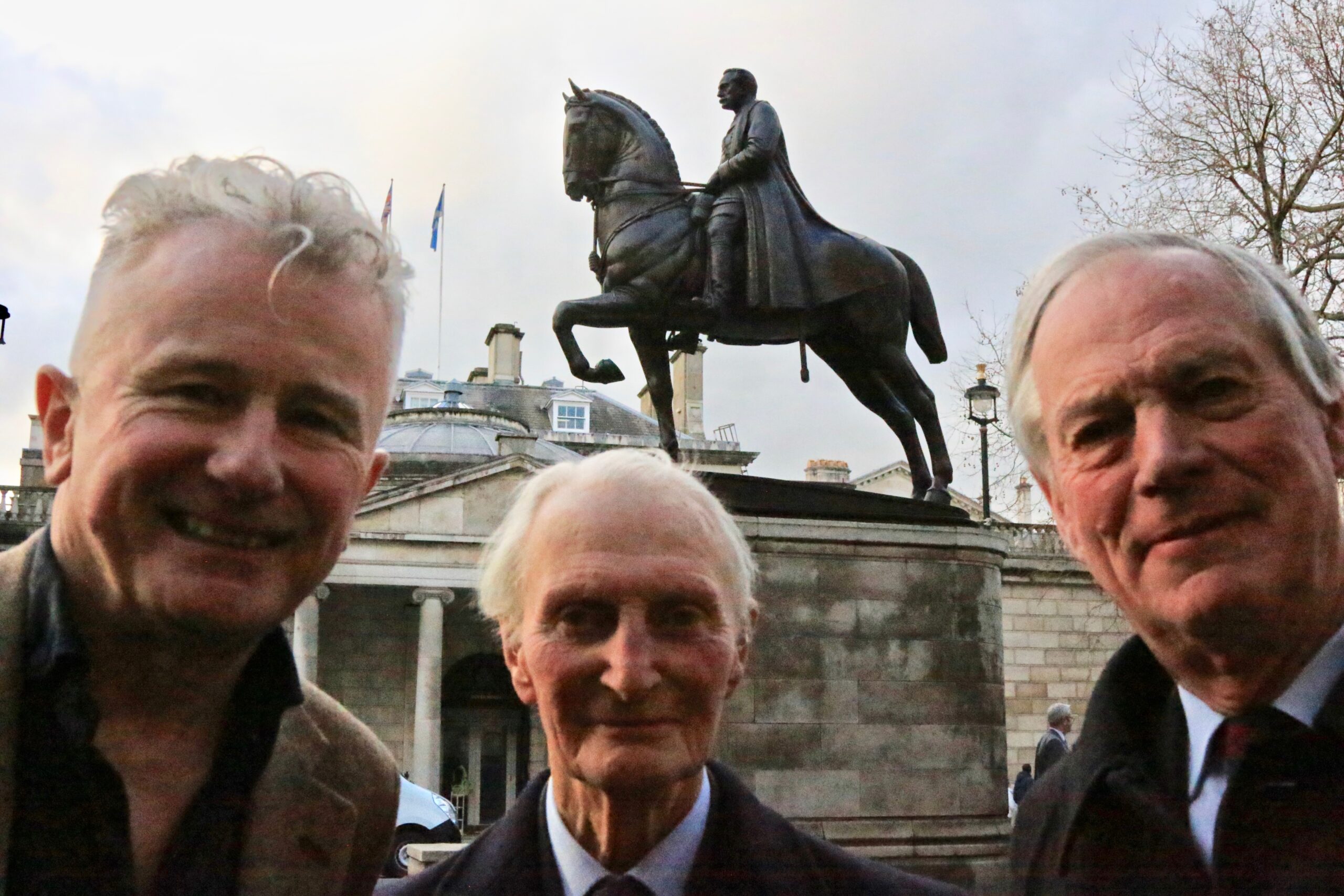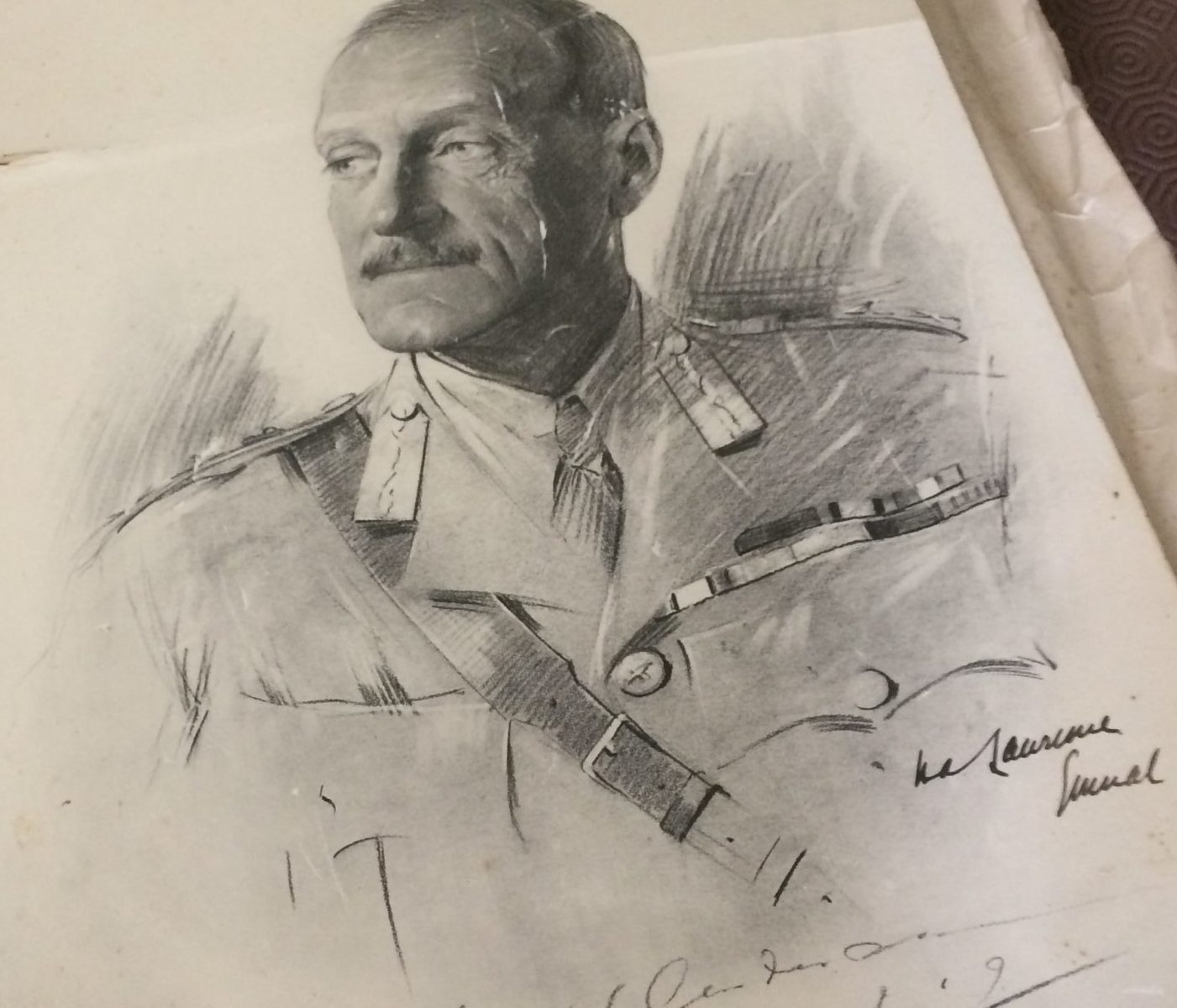
When war broke out in 1914, Bols was forty seven years old with a long military career behind him. Born in Cape Town, he joined the Devonshire Regiment in 1887 following his education in England. As part of Britain’s ‘colonial police force’ he served in Burma and with the Chitral Relief Force. He was present at several of the major battles of the South African War including Colenso and the Relief of Ladysmith. Awarded the DSO and twice mentioned in dispatches, Bols returned to the UK in 1902. At the start of the First World War, he was in command of the Devonshire Regiment. The following year, Bols was promoted to lead the 84th Infantry Brigade during the Second Battle of Ypres when the German army attacked using gas. In autumn 1915, he was appointed to head the staff of XII Corps which was soon followed by him becoming MGGS of Third Army under General Edmund Allenby. He remained in this position until after the Battle of Arras in 1917 when transferred to head 24th Division. The partnership with Allenby resumed when he became his chief of staff in Palestine from 1917-1918. Bols was a colourful figure who courted some controversy. He died in Bath in 1930.



